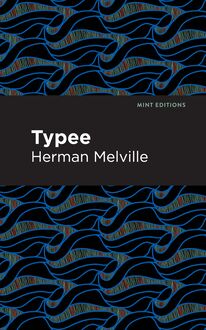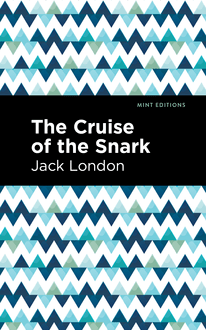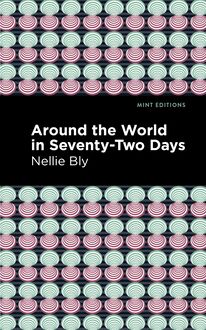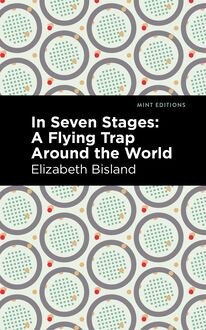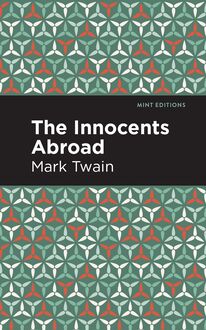-
 Univers
Univers
-
 Ebooks
Ebooks
-
 Livres audio
Livres audio
-
 Presse
Presse
-
 Podcasts
Podcasts
-
 BD
BD
-
 Documents
Documents
-
- Cours
- Révisions
- Ressources pédagogiques
- Sciences de l’éducation
- Manuels scolaires
- Langues
- Travaux de classe
- Annales de BEP
- Etudes supérieures
- Maternelle et primaire
- Fiches de lecture
- Orientation scolaire
- Méthodologie
- Corrigés de devoir
- Annales d’examens et concours
- Annales du bac
- Annales du brevet
- Rapports de stage
La lecture à portée de main
Vous pourrez modifier la taille du texte de cet ouvrage
Découvre YouScribe en t'inscrivant gratuitement
Je m'inscrisDécouvre YouScribe en t'inscrivant gratuitement
Je m'inscrisEn savoir plus
Vous pourrez modifier la taille du texte de cet ouvrage
En savoir plus

Description
“She was part of the ‘stunt girl’ movement that was very important in the 1880s and 1890s as these big, mass-circulation yellow journalism papers came into the fore.” –Brooke Kroeger
Around the World in Seventy-Two Days (1890) is a travel narrative by American investigative journalist Nellie Bly. Proposed as a recreation of the journey undertaken by Phileas Fogg in Jules Verne’s Around the World in Eighty Days (1873), Bly’s journey was covered in Joseph Pulitzer’s popular newspaper the New York World, inspiring countless others to attempt to surpass her record. At the time, readers at home were encouraged to estimate the hour and day of Bly’s arrival, and a popular board game was released in commemoration of her undertaking.
Embarking from Hoboken, noted investigative journalist Nellie Bly began a voyage that would take her around the globe. Bringing only a change of clothes, money, and a small travel bag, Bly travelled by steamship and train through England, France—where she met Jules Verne—Italy, the Suez Canal, Ceylon, Singapore, Hong Kong, and Japan. Sending progress reports via telegraph, she made small reports back home while recording her experiences for publication upon her return. Despite several setbacks due to travel delays in Asia, Bly managed to beat her estimated arrival time by several days despite making unplanned detours, such as visiting a Chinese leper colony, along the way. Unbeknownst to Bly, her trip had inspired Cosmopolitan’s Elizabeth Brisland to make a similar circumnavigation beginning on the exact day, launching a series of copycat adventures by ambitious voyagers over the next few decades. Despite being surrounded by this air of popularity and competition, however, Bly took care to make her journey worthwhile, showcasing her skill as a reporter and true pioneer of investigative journalism.
With a beautifully designed cover and professionally typeset manuscript, this edition of Nellie Bly’s Around the World in Seventy-Two Days is a classic work of American travel literature reimagined for modern readers.
Sujets
Informations
| Publié par | Mint Editions |
| Date de parution | 27 avril 2021 |
| Nombre de lectures | 1 |
| EAN13 | 9781513285085 |
| Langue | English |
| Poids de l'ouvrage | 2 Mo |
Informations légales : prix de location à la page 0,0450€. Cette information est donnée uniquement à titre indicatif conformément à la législation en vigueur.
Extrait
Around the World in Seventy-Two Days
Nellie Bly
Around the World in Seventy-Two Days was first published in 1890.
This edition published by Mint Editions 2021.
ISBN 9781513280066 | E-ISBN 9781513285085
Published by Mint Editions®
minteditionbooks .com
Publishing Director: Jennifer Newens
Design & Production: Rachel Lopez Metzger
Project Manager: Micaela Clark
Typesetting: Westchester Publishing Services
C ONTENTS I. A P ROPOSAL TO G IRDLE THE E ARTH II. T HE S TART III. S OUTHAMPTON TO J ULES V ERNE ’ S IV. J ULES V ERNE AT H OME V. O N TO B RINDISI VI. A N A MERICAN H EIRESS VII. “T WO B EAUTIFUL B LACK E YES ” VIII. A DEN TO C OLOMBO IX. D ELAYED F IVE D AYS X. I N THE P IRATE S EAS XI. A GAINST THE M ONSOON XII. B RITISH C HINA XIII. C HRISTMAS IN C ANTON XIV. T O THE L AND OF THE M IKADO XV. O NE H UNDRED AND T WENTY H OURS IN J APAN XVI. A CROSS THE P ACIFIC XVII. A CROSS THE C ONTINENT XVIII. T HE R ECORD
I
A P ROPOSAL TO G IRDLE THE E ARTH
What gave me the idea?
It is sometimes difficult to tell exactly what gives birth to an idea. Ideas are the chief stock in trade of newspaper writers and generally they are the scarcest stock in market, but they do come occasionally,
This idea came to me one Sunday. I had spent a greater part of the day and half the night vainly trying to fasten on some idea for a newspaper article. It was my custom to think up ideas on Sunday and lay them before my editor for his approval or disapproval on Monday. But ideas did not come that day and three o’clock in the morning found me weary and with an aching head tossing about in my bed. At last tired and provoked at my slowness in finding a subject, something for the week’s work, I thought fretfully:
“I wish I was at the other end of the earth!”
“And why not?” the thought came: “I need a vacation; why not take a trip around the world?”
It is easy to see how one thought followed another. The idea of a trip around the world pleased me and I added: “If I could do it as quickly as Phileas Fogg did, I should go.”
Then I wondered if it were possible to do the trip eighty days and afterwards I went easily off to sleep with the determination to know before I saw my bed again if Phileas Fogg’s record could be broken.
I went to a steamship company’s office that day and made a selection of time tables. Anxiously I sat down and went over them and if I had found the elixir of life I should not have felt better than I did when I conceived a hope that a tour of the world might be made in even less than eighty days.
I approached my editor rather timidly on the subject. I was afraid that he would think the idea too wild and visionary.
“Have you any ideas?” he asked, as I sat down by his desk.
“One,” I answered quietly.
He sat toying with his pens, waiting for me to continue, so I blurted out:
“I want to go around the world!”
“Well?” he said, inquiringly looking up with a faint smile in his kind eyes.
“I want to go around in eighty days or less. I think I can beat Phileas Fogg’s record. May I try it?”
To my dismay he told me that in the office they had thought of this same idea before and the intention was to send a man. However he offered me the consolation that he would favor my going, and then we went to talk with the business manager about it.
“It is impossible for you to do it,” was the terrible verdict. “In the first place you are a woman and would need a protector, and even if it were possible for you to travel alone you would need to carry so much baggage that it would detain you in making rapid changes. Besides you speak nothing but English, so there is no use talking about it; no one but a man can do this.”
“Very well,” I said angrily, “Start the man, and I’ll start the same day for some other newspaper and beat him.”
“I believe you would,” he said slowly. I would not say that this had any influence on their decision, but I do know that before we parted I was made happy by the promise that if any one was commissioned to make the trip, I should be that one.
After I had made my arrangements to go, other important projects for gathering news came up, and this rather visionary idea was put aside for a while.
One cold, wet evening, a year after this discussion, I received a little note asking me to come to the office at once. A summons, late in the afternoon, was such an unusual thing to me that I was to be excused if I spent all my time on the way to the office wondering what I was to be scolded for.
I went in and sat down beside the editor waiting for him to speak. He looked up from the paper on which he was writing and asked quietly: “Can you start around the world day after tomorrow?”
“I can start this minute,” I answered, quickly trying to stop the rapid beating of my heart.
“We did think of starting you on the City of Paris tomorrow morning, so as to give you ample time to catch the mail train out of London. There is a chance if the Augusta Victoria, which sails the morning afterwards, has rough weather of your failing to connect with the mail train.”
“I will take my chances on the Augusta Victoria, and save one extra day,” I said.
The next morning I went to Ghormley, the fashionable dressmaker, to order a dress. It was after eleven o’clock when I got there and it took but very few moments to tell him what I wanted.
I always have a comfortable feeling that nothing is impossible if one applies a certain amount of energy in the right direction. When I want things done, which is always at the last moment, and I am met with such an answer: “It’s too late. I hardly think it can be done;” I simply say:
“Nonsense! If you want to do it, you can do it. The question is, do you want to do it?”
I have never met the man or woman yet who was not aroused by that answer into doing their very best.
If we want good work from others or wish to accomplish anything ourselves, it will never do to harbor a doubt as to the result of an enterprise.
So, when I went to Ghormley’s, I said to him: “I want a dress by this evening.”
“Very well,” he answered as unconcernedly as if it were an everyday thing for a young woman to order a gown on a few hours’ notice.
“I want a dress that will stand constant wear for three months,” I added, and then let the responsibility rest on him.
Bringing out several different materials he threw them in artistic folds over a small table, studying the effect in a pier glass before which he stood.
He did not become nervous or hurried. All the time that he was trying the different effects of the materials, he kept up a lively and half humorous conversation. In a few moments he had selected a plain blue broadcloth and a quiet plaid camel’s-hair as the most durable and suitable combination for a traveling gown.
Before I left, probably one o’clock, I had my first fitting. When I returned at five o’clock for a second fitting, the dress was finished. I considered this promptness and speed a good omen and quite in keeping with the project.
After leaving Ghormley’s I went to a shop and ordered an ulster. Then going to another dressmaker’s, I ordered a lighter dress to carry with me to be worn in the land where I would find summer.
I bought one hand-bag with the determination to confine my baggage to its limit.
That night there was nothing to do but write to my few friends a line of farewell and to pack the hand-bag.
Packing that bag was the most difficult undertaking of my life; there was so much to go into such little space.
I got everything in at last except the extra dress. Then the question resolved itself into this: I must either add a parcel to my baggage or go around the world in and with one dress. I always hated parcels so I sacrificed the dress, but I brought out a last summer’s silk bodice and after considerable squeezing managed to crush it into the hand-bag.
I think that I went away one of the most superstitious of girls. My editor had told me the day before the trip had been decided upon of an inauspicious dream he had had. It seemed that I came to him and told him I was going to run a race. Doubting my ability as a runner, he thought he turned his back so that he should not witness the race. He heard the band play, as it does on such occasions, and heard the applause that greeted the finish. Then I came to him with my eyes filled with tears and said: “I have lost the race.”
“I can translate that dream,” I said, when he finished; “I will start to secure some news and some one else will beat me.”
When I was told the next day that I was to go around the world I felt a prophetic awe steal over me. I feared that Time would win the race and that I should not make the tour in eighty days or less.
Nor was my health good when I was told to go around the world in the shortest time possible at that season of the year. For almost a year I had been a daily sufferer from headache, and only the week previous I had consulted a number of eminent physicians fearing that my health was becoming impaired by too constant application to work. I had been doing newspaper work for almost three years, during which time I had not enjoyed one day’s vacation. It is not surprising then that I looked on this trip as a most delightful and much needed rest.
The evening before I started I went to the office and was given £200 in English gold and Bank of England notes. The gold I carried in my pocket. The Bank of England notes were placed in a chamois-skin bag which I tied around my neck. Besides this I took some American gold and paper money to use at different ports as a test to see if American money was known outside of America.
Down in the bottom of my hand-bag was a special passport, number 247, signed by James G. Blaine, Secretary of State. Someone suggested that a revolver would be a good companion piece for the passport, but I had such a strong belief in the world’s greeting me as I greeted it, that I refused to arm myself. I knew if my conduct was proper I should always find
-
 Univers
Univers
-
 Ebooks
Ebooks
-
 Livres audio
Livres audio
-
 Presse
Presse
-
 Podcasts
Podcasts
-
 BD
BD
-
 Documents
Documents
-
Jeunesse
-
Littérature
-
Ressources professionnelles
-
Santé et bien-être
-
Savoirs
-
Education
-
Loisirs et hobbies
-
Art, musique et cinéma
-
Actualité et débat de société
-
Jeunesse
-
Littérature
-
Ressources professionnelles
-
Santé et bien-être
-
Savoirs
-
Education
-
Loisirs et hobbies
-
Art, musique et cinéma
-
Actualité et débat de société
-
Actualités
-
Lifestyle
-
Presse jeunesse
-
Presse professionnelle
-
Pratique
-
Presse sportive
-
Presse internationale
-
Culture & Médias
-
Action et Aventures
-
Science-fiction et Fantasy
-
Société
-
Jeunesse
-
Littérature
-
Ressources professionnelles
-
Santé et bien-être
-
Savoirs
-
Education
-
Loisirs et hobbies
-
Art, musique et cinéma
-
Actualité et débat de société
- Cours
- Révisions
- Ressources pédagogiques
- Sciences de l’éducation
- Manuels scolaires
- Langues
- Travaux de classe
- Annales de BEP
- Etudes supérieures
- Maternelle et primaire
- Fiches de lecture
- Orientation scolaire
- Méthodologie
- Corrigés de devoir
- Annales d’examens et concours
- Annales du bac
- Annales du brevet
- Rapports de stage
